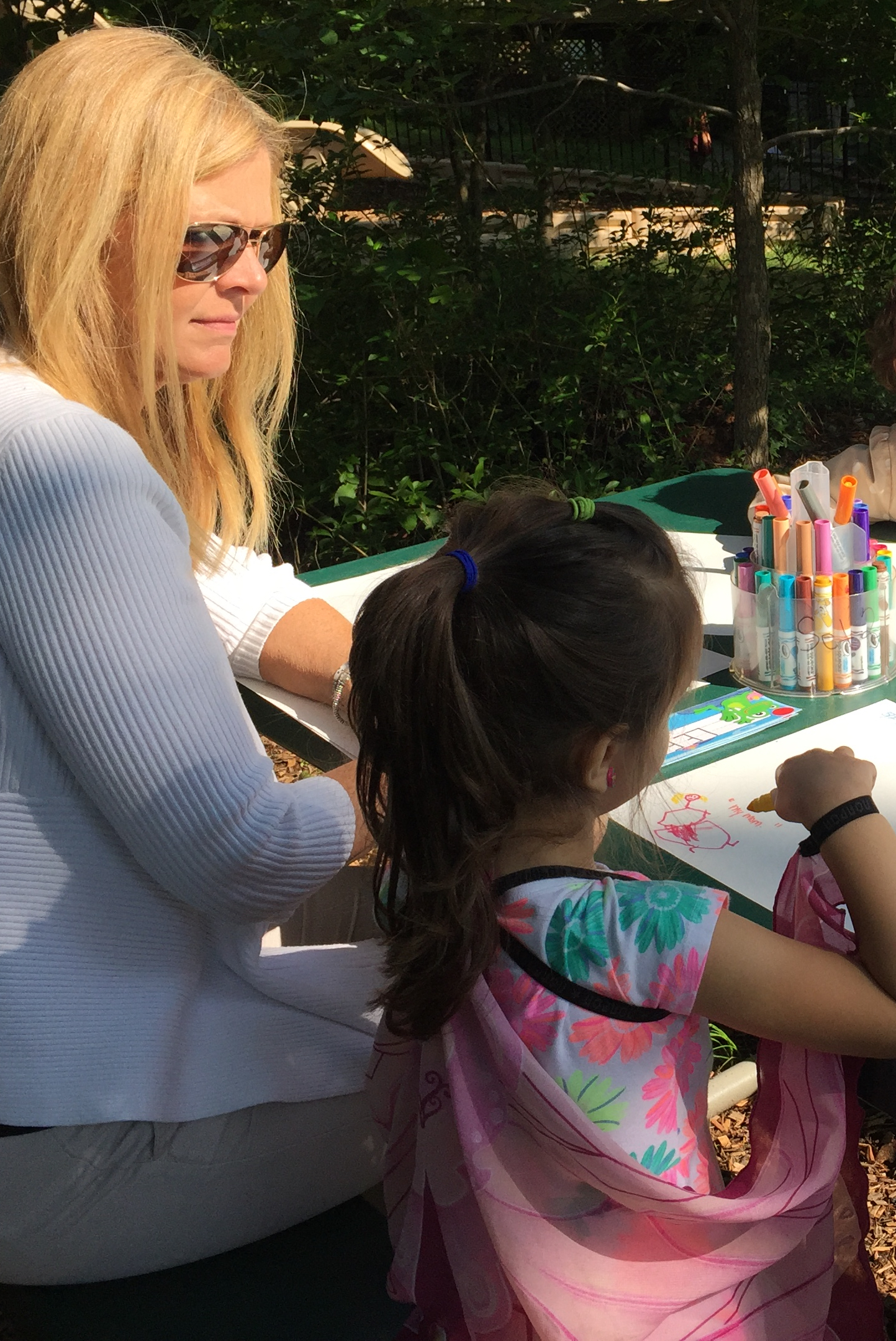Reflective questions for choosing resources or shaping your practice
By Peggy Ashbrook
Posted on 2019-07-26
Asking myself about my teaching practice and looking for evidence to answer reflective questions (see Resources) that support my growth as an educator means considering how I collect data when working with children or adults.

Reflective questions from the Thinking LensTM guide lead teacher Brian Silveria’s support of, and participation in, his children’s discoveries in their exploration of natural phenomena such as the flow of rain water (Silveria with Curtis 2018.) Members of the NAEYC Early Childhood Science Interest Forum (ECSIF) (Peterson et al 2019) discuss the use of online resources and provide two sets of questions we can use to tell if activities and lesson plans found on the web are of high quality. Use the questions tool to help determine if activities engage children in the practices of science and engineering (NRC 2013), don’t underestimate children’s abilities to learn core science ideas, and provide the necessary time children will need to deeply engage in meaningful scientific questions and engineering problems. And to avoid craft-only, teacher demonstrations, or prescribed steps for children to follow exactly.
Resources
Curtis, Deb, and Margie Carter, Debbie Lebo, Wendy C.M. Cividanes. 2013. Reflecting in Communities of Practice: A Workbook for Early Childhood Educators. Redleaf Press. https://www.redleafpress.org/Reflecting-in-Communities-of-Practice-A-Workbook-for-Early-Childhood-Educators-P2353.aspx
NRC. 2013. Next Generation Science Standards: For States, By States. Washington, DC: The National Academies Press. www.nextgenscience.org/next-generation-science-standards.
Peterson, Sherri, and Cindy Hoisington, Peggy Ashbrook, Beth Dykstra Van Meeteren, Rosemary Geiken, Sonia Akiko Yoshizawa, Sandy Chilton and Joseph B. Robinson. 2019. To Pin or Not to Pin? Choosing, Using, and Sharing High-Quality STEM Resources. Young Children. 74(3): 79-85. https://www.naeyc.org/resources/pubs/yc/jul2019/high-quality-stem-resources
Silveria, Brian, with Deb Curtis. 2018. Look, Listen, Learn. Where Does the Rain Go? Considering the Teacher’s Role in Children’s Discoveries. Teaching Young Children. 11(5): 22-23. https://www.naeyc.org/resources/pubs/tyc/aug2018/considering-teachers-role-childrens-discoveries
A Thinking LensTM for Reflection and Inquiry. https://www.uwyo.edu/wind/_files/docs/echo/ec-resources/session-materials-thinking-lens-1.pdf
Disclaimer: The views expressed in this blog post are those of the author(s) and do not necessarily reflect the official position of the National Science Teaching Association (NSTA).


